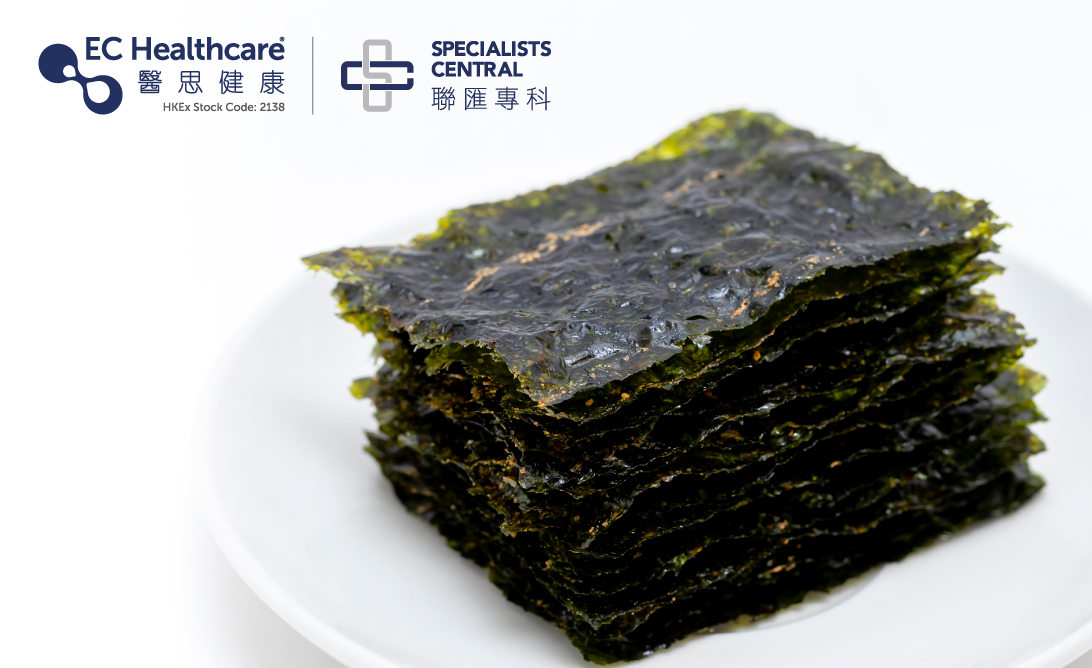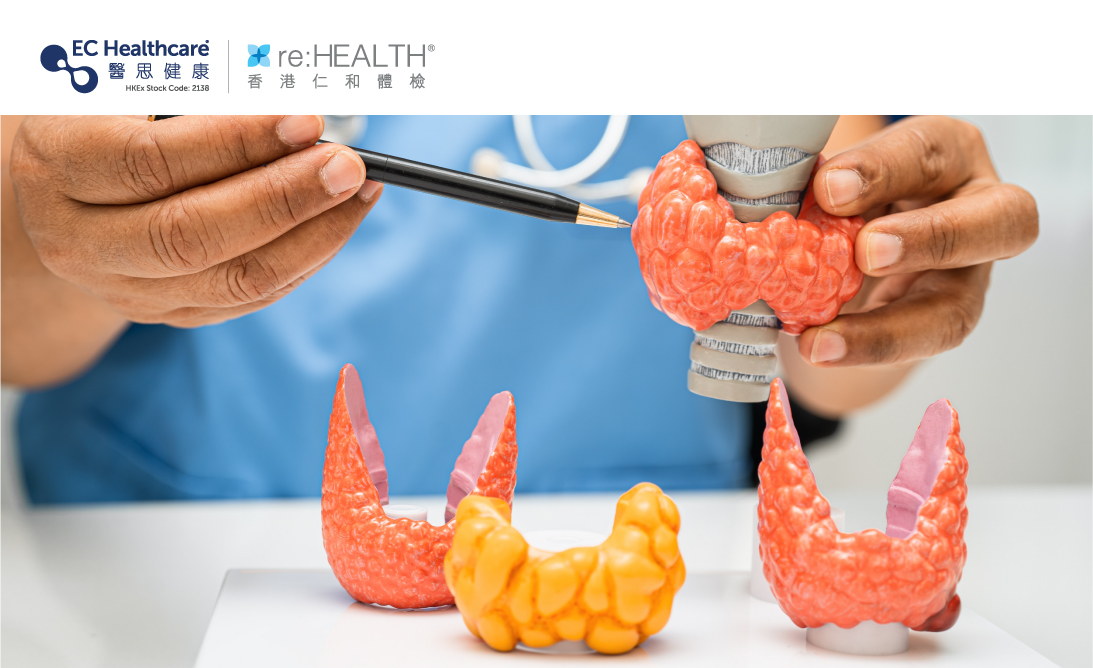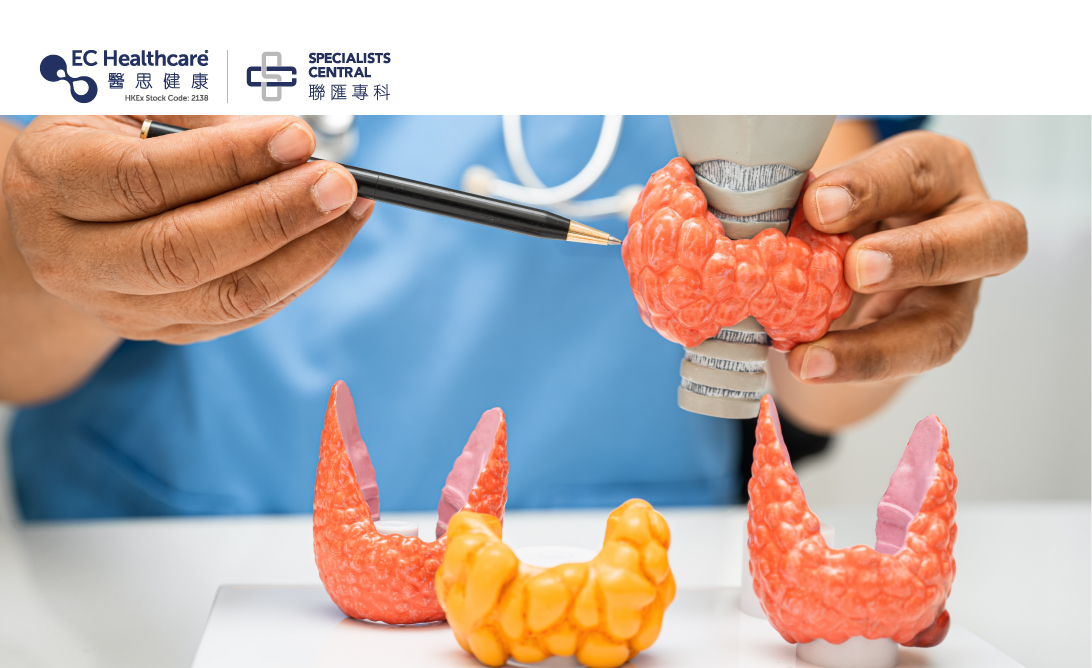Seaweed snacks high in iodine and sodium affect the thyroid gland


Dried seaweed is a common snack and a good add-in to plain rice. It is popular among children and adults. From February to April 2022, the Consumer Council put different types of grab-and-go seaweed in the market to the test, to examine their metallic contaminant content and nutritional value. All samples reported a rich iodine content, while most of them were high in sodium and contained many metallic contaminants. As natural seaweed already contains sea salt, and salt is further added during most of the manufacturing process, hence the high-sodium content in the grab-and-go seaweed. When consumed in excess, foods high in sodium and iodine may affect the function of the thyroid gland, resulting in conditions like thyroid goitre, hyperthyroidism, hypothyroidism, etc.
Iodine is a trace element that is essential for the thyroid gland to synthesise thyroid hormones. It is a mineral that is necessary to maintain normal thyroid function, promote growth and development, and maintain the metabolism in the body. Iodine also contributes to the neurological development and maturation of the baby's brain. Severe iodine deficiency can affect fetal or infant brain development and may increase the risk of premature birth or miscarriage.
In addition, frequent consumption of foods high in sodium increases the risk of developing hypertension. The WHO recommends an iodine intake of 150μg per day for adolescents/ adults, and 250μg for pregnant/lactating women. The tolerable upper intake level is 1,000μg per day for healthy adults.
The main sources of iodine intake for humans are food and water. The iodine in the food is derived from the natural environment like soil and seawater. Therefore, foods such as algae, marine fish, and shellfish are naturally rich in iodine. Milk/ dairy products and eggs/ egg products may have higher iodine content if they come from countries where universal salt iodisation is practised. Therefore, it is important to be careful about the daily consumption amount of these foods. People who regularly eat foods with high iodine content should be aware of any symptoms of hyperthyroidism and seek immediate medical attention if they suspect it to prevent their condition from worsening.
Hyperthyroidism occurs when your thyroid gland produces too much thyroxine, causing symptoms such as:
Emotional irritability
High systolic pressure, low diastolic pressure and fast heart rate
Frequent nausea, vomiting or diarrhoea
High body temperature
Prone to shock
Drowsiness
Jaundice
Symptoms of heart failure, such as rapid breathing or frequent fatigue
Related Brands



